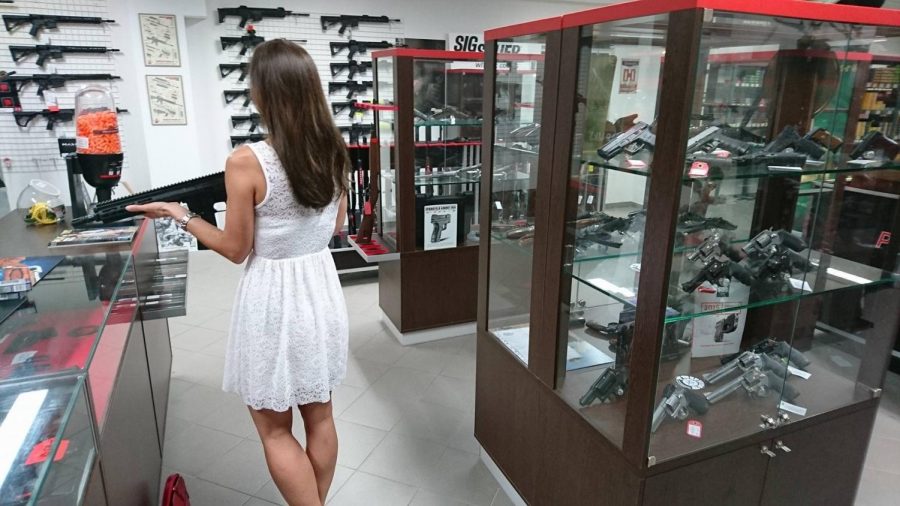Wiygul: Why guns are disappearing as fast as toilet paper
America has seen a major spike in gun sales as the world fights the coronavirus. Many people claim owning a gun makes them feel more at ease during an uncertain time.
April 10, 2020
As the world rides the waves of the coronavirus crisis, Americans are mass buying up anything they can in stores. While the loss of toilet paper in markets has the Internet confused, there is a more concerning trend appearing in the U.S. consumerism. Guns are disappearing from their shelves just as fast. The logic behind defeating a virus with a gun seems confusing but looking at trends from previous years shows that panic-buying artillery is nothing new.
With the threat of the coronavirus looming over the country, every day businesses get more affected by the tightening regulation instituted by state governments. During this crisis, Mississippians have turned to Governor Tate Reeves for guidance. While mostly following behind the trends of other states, on March 24, he signed an executive order that shocked many, declaring that gun stores are essential businesses.
This order overrules local restrictions put into place to prevent the spread. Reeves’s reasoning for keeping these stores open was that they are “necessary for maintaining community, public health, and the economy.” Without the whole picture it is hard to determine why some businesses are considered essential while others lose valuable revenue.
Amidst all of the supermarkets, restaurants and post offices, the lights of the signs on the gun stores in America are a beacon of hope to the U.S. In a country built on the right to bear arms, the guns are one of the few constants left. In times of crisis, the need to feel safe causes people who have never had guns before to buy them.
According to the Small Arms Analytics and Forecasting, gun sales have increased 85 percent this March compared to last March. FBI data reports 2 million guns were bought in March alone. This data tops the previous high in December 2015 when in the wake of the mass shooting in San Bernardino, Calif., the Obama administration attempted to restrict assault rifles. Most trends in gun buying come from the increased possibility of guns being restricted rather than the situation itself, as evidenced by the increase in sales after Obama’s election and the decrease after Trump’s.
During this pandemic, U.S. citizens are looking at two main reasons to buy a gun for their peace of mind. Some are worried as the government imposes more restrictions to “flatten the curve” that they might use this increased power to take away rights like guns. Others are concerned with there soon being no government to help them as police are busier than ever keeping people off the streets.
Panic-buying is the most obvious reason for the surge in gun sales, but assuming it is the only reason is overlooking a massive issue. In these uncertain times people are terrified of what might come next. The possibility of getting the coronavirus and spreading it to their family weighs heavy on many people’s shoulders. That, along with the mental strain of being isolated at home and the rapid increase of unemployment, will cause many of these gun buyers to turn to suicide as a way out. While the health department is focused on the virus, soon they will need to address this inevitable effect.
This panic buying is more serious than toilet paper, though, as in the best-case scenario the paperwork required for a gun takes longer to get back to the stores. In worst-case scenarios, stores overlook the necessary paperwork to get in as many clients as they can. On March 21, the FBI reported 210,000 background checks being done which is the largest one-day sales in history.
With more first-time customers also comes more people who have not had the needed training to handle a gun properly. So, while school shootings are impossible right now, the U.S. may begin to see a spike in gun-related accidents in homes.
Guns are an important part of American culture, but even if they ease the public’s anxieties, the effects are not worth them being considered essential. They are a quick fix to an issue that will not last more than a year. The U.S. will be left with a bandaid on a wound that has healed, resulting in thousands of inexperienced new gun owners who have an item that they have no real use for besides fatal accidents.










